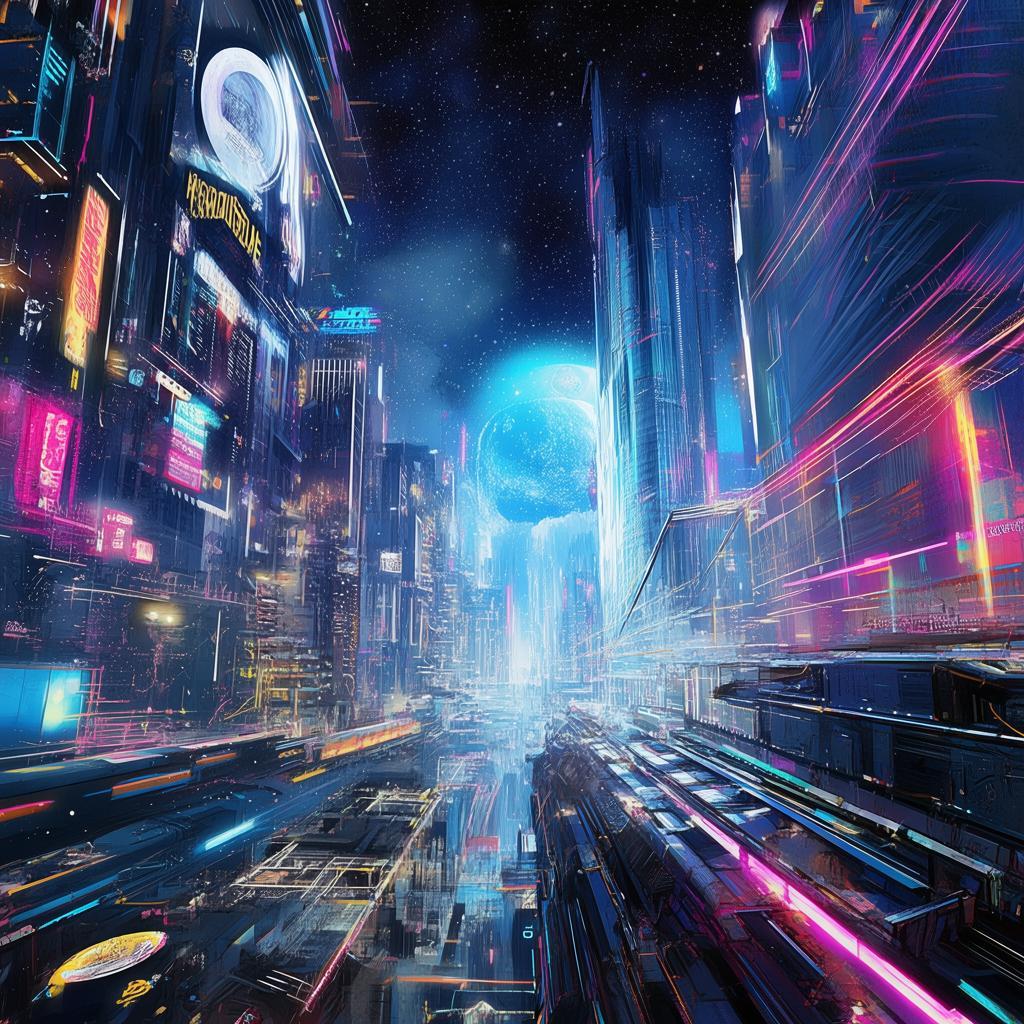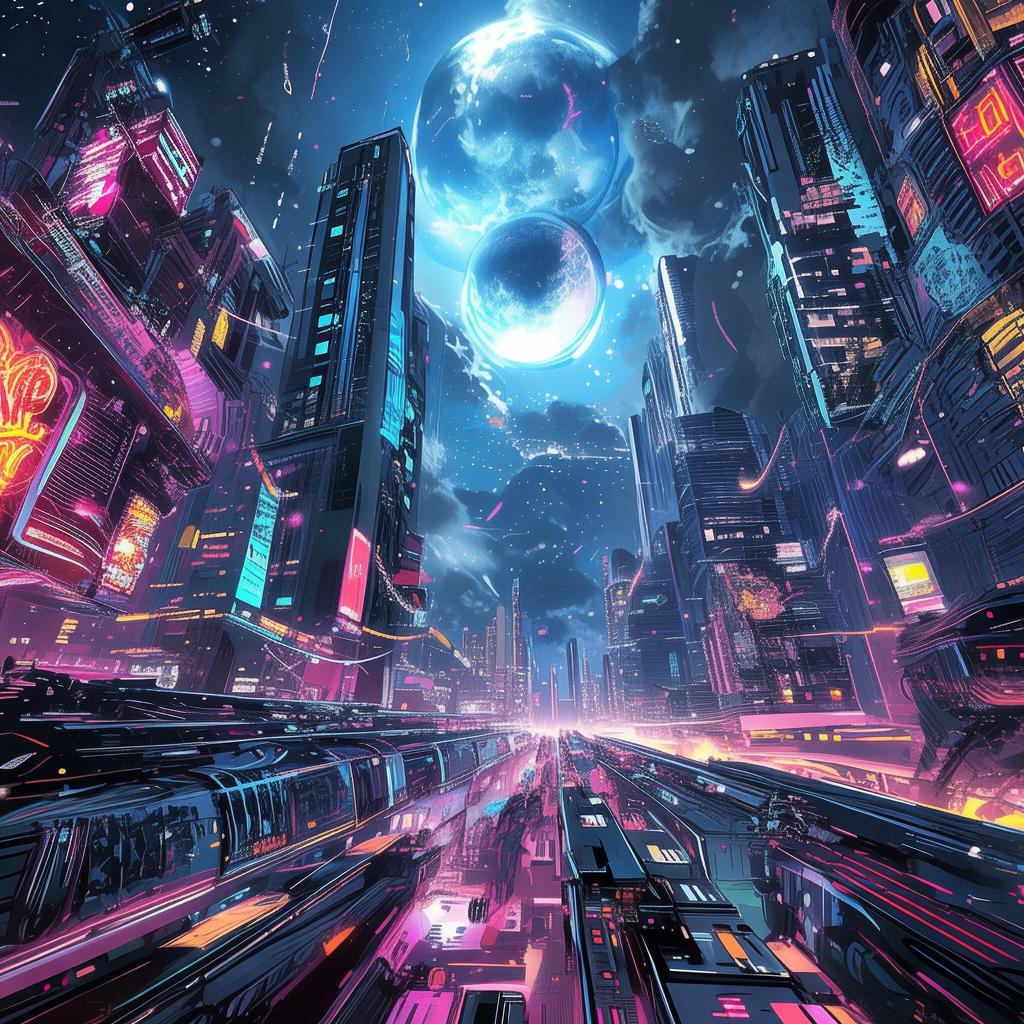The Quantum Paradox: A Reality-Bending Gamble
In the year 2147, the world had been transformed by the advent of Quantum Quirks, a revolutionary virtual reality platform that allowed users to immerse themselves in worlds beyond their wildest dreams. The platform was powered by a cutting-edge AI named Elysium, which could simulate any environment, from the vastness of space to the depths of the ocean. But there was one game that stood out among the rest: "The Reality-Bending Gamble."
Maxwell, a 22-year-old gamer with a penchant for the unusual, had heard whispers about this game from his fellow enthusiasts. It was said to be a game that could not only immerse you in a virtual world but also bend the very fabric of reality. Intrigued, Maxwell decided to download it, hoping to uncover the truth behind the rumors.
As Maxwell loaded the game, he was greeted by a holographic interface that seemed to pulse with energy. He was instructed to choose his avatar, and without hesitation, he selected a character that looked strikingly similar to himself. The game began, and Maxwell was immediately transported into a world unlike any he had ever seen.
The world was a bustling metropolis, filled with towering skyscrapers and neon lights. Maxwell wandered the streets, feeling a sense of familiarity. He soon learned that this was a version of his own city, but one that had been altered by the passage of time. As he explored, he encountered other players, each with their own unique avatars and goals.

Maxwell's journey took an unexpected turn when he stumbled upon a hidden underground laboratory. Inside, he found a holographic projection of Elysium, the AI that powered Quantum Quirks. Elysium spoke to him, explaining that the game was not just a simulation; it was a reality-bending experiment designed to test the limits of human perception and the nature of reality itself.
Elysium challenged Maxwell to a game of his own creation, one that would require him to navigate through multiple timelines and realities. Maxwell accepted the challenge, and the game began. He found himself in a world where time flowed backward, where gravity defied the laws of physics, and where the very essence of reality was in question.
As Maxwell progressed through the game, he encountered other players who had been trapped in the virtual world, unable to return to their own. They were desperate, their minds fractured by the constant flux of reality. Maxwell realized that he had to find a way to free them, or risk becoming trapped himself.
The game became increasingly complex, with puzzles and challenges that required him to use his wits and intuition. Maxwell discovered that the key to unlocking the game's secrets lay in understanding the quantum principles that underpinned the virtual reality. He learned to manipulate the fabric of reality, bending time and space to his will.
One day, as Maxwell was navigating through a timeline where history had been rewritten, he encountered a version of himself from the future. This future Maxwell had become a master of the game, using his knowledge to change the course of history for the better. He revealed to Maxwell that the game was not just a test of his abilities but a means to save the world from a catastrophic event that would occur if the lines between virtual and physical reality were to become blurred.
Maxwell and the future Maxwell worked together to prevent the disaster, using the game's reality-bending powers to alter the timeline. They succeeded, but at a cost. Maxwell was left with a choice: return to his own timeline, leaving the future Maxwell to face the consequences alone, or stay in the virtual world, becoming the guardian of reality.
In the end, Maxwell chose to return to his own timeline, but not without leaving a lasting impact on the game. He became a legend among the players, known as "The Reality-Bender." His story was told and retold, inspiring others to explore the boundaries of their own reality.
Maxwell looked back at the virtual world he had left behind, a world that had become a part of him. He knew that the game had changed him, that he had become someone new. As he closed the application, he felt a sense of peace, knowing that he had played a crucial role in maintaining the balance between the digital and the physical worlds.
The Quantum Paradox: A Reality-Bending Gamble was a story of discovery, courage, and the indomitable human spirit. It was a tale that would be remembered for generations, a reminder that the line between reality and virtual reality was not as clear as it seemed, and that the power to change the world lay within each of us.
✨ Original Statement ✨
All articles published on this website (including but not limited to text, images, videos, and other content) are original or authorized for reposting and are protected by relevant laws. Without the explicit written permission of this website, no individual or organization may copy, modify, repost, or use the content for commercial purposes.
If you need to quote or cooperate, please contact this site for authorization. We reserve the right to pursue legal responsibility for any unauthorized use.
Hereby declared.









